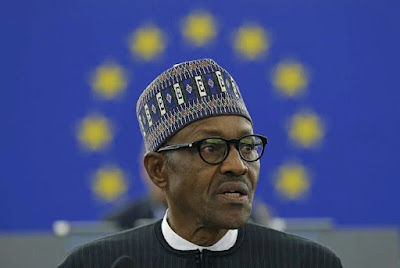ACF, Labour reject call for sale of national assets
The groups said in Kaduna on Monday that rather than sell the assets, ‘’allowances of public officers and government overhead cost should be reduced to cushion the harsh effect of recession.’’
The ACF and the National Union of Garment, Textiles and Tailoring Workers of Nigeria, said in separate statements that Nigeria was not for sale.
They said that selling national assets, such as airports, Nigeria Liquefied Natural Gas (NLNG) and refineries was like selling Nigeria.
The ACF National Publicity Secretary, Alhaji Muhammad Ibrahim, said that the previous sale of national assets had not helped the country economically.
Ibrahim said that selling NLNG and four refineries would only strip the country of vital assets without requisite funds going into the public treasury.
“The growing calls by some prominent politicians and business tycoons on the Federal Government to consider the sale of strategic viable national assets … at this material time is inappropriate,’’ he said.
Ibrahim said past privatisation of national enterprises did not yield the desired result ‘’in terms of judicious use of proceeds by the government or management practices of the assets by the new owners.
He listed some public enterprises sold in the past, including Nigeria Airways, Nigerian National Shipping Line, Ajaokuta Steel Company, NITEL and Power Holding Company of Nigeria.
He said the sale of the enterprises to ‘’selected Nigerians and their foreign collaborators in the spirit of privatisation, only succeeded in converting public enterprises to private ones and some later became comatose.
‘’The ones that survived, their service delivery cannot be said to be better.
“ACF, therefore, considers it unwise for the Federal Government to contemplate the selling of our major national assets like the oil refineries, federal airports and NLNG,’’ Ibrahim said.
“ The Federal Government’s diversification policy in agriculture and solid mineral resources is aimed at boosting the economy to arrest the recession.
“ACF wishes to suggest that unnecessary allowances of public officers and overhead cost that form over 40 per cent of our annual budget should be converted to capital allocation to boost the economy,’’ Ibrahim said.
He called for sacrifice in order to bequeath an enduring legacy to the next generation and stressed that ‘’positive change usually comes with painful necessary sacrifice.’’
He said ACF supported some of the measures proposed by the National Economic Council.
He called on prominent businessmen and women to invest in the oil and gas industry and other businesses that would compete with public enterprises to boost the economy.
Similarly, the General Secretary of National Union of Garment, Textiles and Tailoring Workers of Nigeria, Mr Issa Aremu, urged President Muhammadu Buhari to be careful about advice he received on the economy.
Aremu warned against “feverish prescriptions of few economic hit men who deliberately undermine national development through recommendations that foster national assets stripping rather than sovereign wealth generation.”
He said in a statement titled, ‘Nigeria not for sale’, that “Nigeria is not short of resources but lacked genuine resourceful leaders at all levels that were committed to nation building.
Aremu said: ’At 50 dollars per barrel of crude oil, Nigeria is a rich country’’ but sadly impoverished by íts leaders.
He said Nigeria would further slide into underdevelopment if NLNG, which paid 12.9 billion dollars to NNPC over eight years and 1.29 billion dollars as dividend for 2013 was sold to the highest bidder. (NAN)



Comments